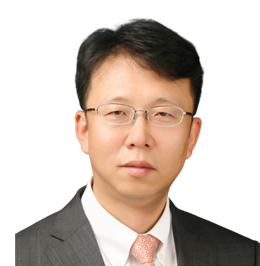Welcome to Sungkyunkwan University (SKKU)
University College

Dear Freshmen
Modern society is changing rapidly due to informalization and globalization. Such shifts present a variety of challenges to education. Since students enter SKKU for a high level of education and knowledge, we need to consider what we need to learn in this new era and how to learn this.
Knowledge is an inevitable necessity in society. However, breakthroughs in IT have prompted changes in how we create, teach, learn, and apply knowledge. In other words, the meaning and social role of “knowledge” are in flux.
The significance of knowledge itself was fundamental in the past, but it is presently yielding its role to “information”. Today, creation, possession, circulation, and consumption of information provides the essential basis for civilization. We can call this “Knowledge-based Information Society”. Changes in this new form of society trigger developments in education and research performed in universities, where much of the creation and learning of knowledge originates.
We can explain this further through three main points:
First, the amount of information created today is astronomical. This vastness hinders educators, as we cannot and should not try to teach every piece of information to students. As a result, university education may appear unsatisfactory due to the high demand for the latest knowledge.
Second, the circulation of information is no longer limited by time or space. Everyone can easily access knowledge, which professors do not possess exclusively. Moreover, simply delivering information to students is inefficient and ineffective education.
Third, the period during which information remains useful has shortened in present society. This means that such recited or delivered information, which quickly becomes old-fashioned and useless, is no longer relevant to students.
As explored above, university education has been confronted with many challenges in today’s information society, and the time to expand universities and students’ roles is now. Universities must focus on raising students’ basic abilities so they can create new knowledge and to apply it to other fields. Students, on the other hand, should not only learn from professors, but should also strive to produce new information by thinking creatively, to evaluate and select useful data and information by thinking critically, to cultivate their communication and leadership skills to share ideas with others by thinking socially, and to cultivate their ability to think holistically by evaluating the relationship between the parts and the whole.
With this shift in educational focus in mind, SKKU University College provides freshmen students with a ”liberal arts” curriculum to help them to identify core problems in their tasks by acquiring, developing, and fusing various skills, and to develop multiple perspectives and thoughtful insights that they can apply to help solve society’s problems today and in the future.
Jae Hyoun KIM
Dean, University College



